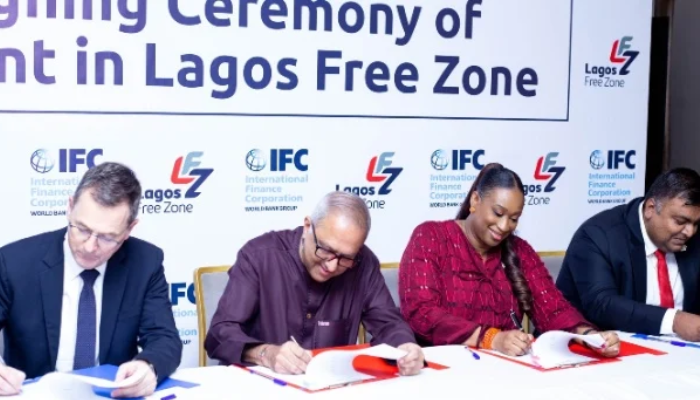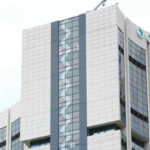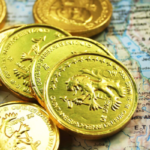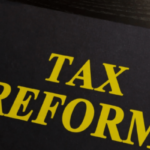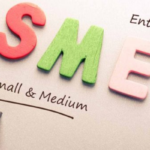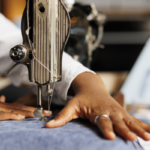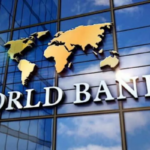The International Finance Corporation (IFC) has announced an equity investment of up to $50 million in Lagos Free Zone Company. The investment aims to support the development of Nigeria’s first deepsea port-based, private special economic zone, the Lagos Free Zone. The initiative seeks to address infrastructure challenges, attract businesses, and contribute to economic diversification in Nigeria.
The funds will finance the first phase of the 860-hectare Lagos Free Zone. This phase focuses on land development, industrial facilities, and logistics infrastructure. Owned by Singapore-based Tolaram, Lagos Free Zone is integrated with Lekki Deep Sea Port. It is positioned as an industrial hub for import and export operations, strengthening Nigeria’s connection to global value chains.
Nigeria’s economy is projected to grow by 3.7% by 2026. Investments in infrastructure remain crucial to sustaining this growth. Upon full operation, Lagos Free Zone is expected to generate approximately 30,000 direct, indirect, and induced jobs. It will also contribute significantly to Nigeria’s gross domestic product (GDP).
Read also: Uganda’s $1.14 billion coffee industry, opposition calls for funding halt
Economic and sustainable development goals
Dahlia Khalifa, IFC Regional Director, Central Africa and Anglophone West Africa, said, “This investment reflects IFC’s commitment to fostering inclusive economic growth and sustainable development in Nigeria. Lagos Free Zone is poised to become a transformative hub for industrial activity, driving job creation and enhancing Nigeria’s competitiveness in global markets. We are proud to partner with Lagos Free Zone in building the infrastructure necessary to attract global and local businesses, enabling Nigeria to achieve its full economic potential.”
The investment aligns with IFC’s focus on sustainability, with about 15% allocated to climate-related projects. These include EDGE-certified buildings and climate-resilient infrastructure. This approach supports Nigeria’s efforts in adopting greener economic strategies and creating an industrial environment that meets international standards.
Adesuwa Ladoja, Managing Director and Chief Executive Officer at Lagos Free Zone Company, commented on the investment. “IFC’s support represents a significant and positive recognition of our vision to establish Lagos Free Zone as a world-class industrial hub. This investment allows us to scale up the existing infrastructure to attract more foreign and local tenants while promoting sustainability and creating economic opportunities for Nigeria. Lagos Free Zone, integrated with Lekki Deep Sea Port, facilitates ease of doing business in Nigeria and supports the Federal Government of Nigeria’s drive for economic diversification and infrastructure development. We look forward to driving growth and delivering lasting impact through this transformative collaboration with the IFC.”
Read also: What Jack Ma’s retirement means for African SMEs in 2025
Strengthening Nigeria’s position in global markets
Lagos Free Zone hosts several global manufacturing brands, including Kellogg’s, Dano Milk, Colgate, BASF, ADM, and Tata International. The investment aligns with Nigeria’s economic reforms and IFC’s strategic objectives, including the World Bank Group’s Nigeria Country Partnership Framework (2021–2025) and the 2015 Climate Action Plan. These frameworks prioritise economic diversification, competitive clusters, and climate-resilient infrastructure.
By addressing infrastructure limitations and improving connectivity, IFC’s investment is expected to open new opportunities for businesses. It will strengthen Nigeria’s position as a key economic player in the region. The integration of Lagos Free Zone with Lekki Deep Sea Port will enhance trade efficiency and support businesses in reaching international markets more effectively.


